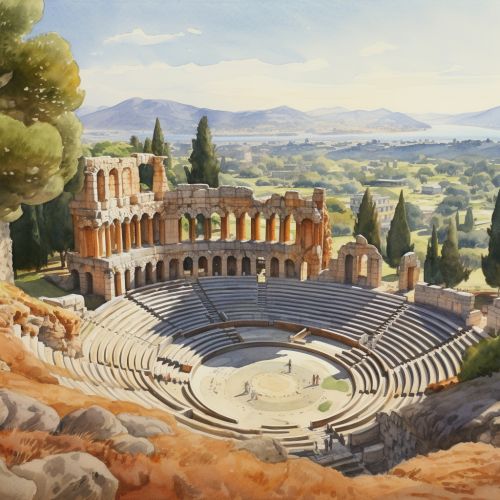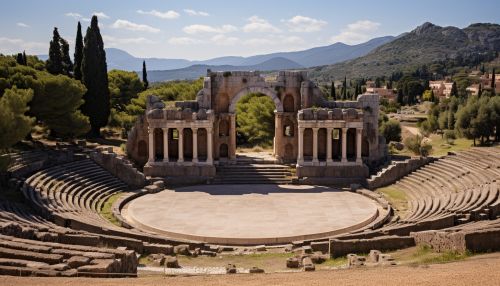The Bacchae
Origins and Background
The Bacchae is a tragedy written by the ancient Greek playwright Euripides. It was one of his last plays and was not performed until after his death. The play is based on the mythological story of King Pentheus of Thebes and his mother Agave, and their punishment by the god Dionysus who is the protagonist in the play.


Plot
The play begins with Dionysus returning to his birthplace in Thebes in order to clear his mother's name and to punish the impious Pentheus who denies the god's divinity. Dionysus plans to demonstrate his godhood to the people of Thebes and to exact a personal vengeance.
Characters
The main characters in the play are Dionysus, Pentheus, Agave, and Cadmus. Dionysus is the estranged god who seeks to establish his worship in Thebes. Pentheus is the skeptical king who denies Dionysus's divinity. Agave, Pentheus's mother, is one of the maenads who are followers of Dionysus. Cadmus is the founder and former king of Thebes, and grandfather of Pentheus and Dionysus.
Themes
The Bacchae explores themes such as the duality of human nature and the relationship between man and god. It portrays the conflict between the rational and emotional sides of man, and the destructive potential of denying or suppressing the emotional side.
Reception and Influence
The Bacchae has been highly influential in literature and the arts, and has been performed and adapted numerous times in various forms and languages. It remains a powerful and relevant exploration of human nature and the divine.
